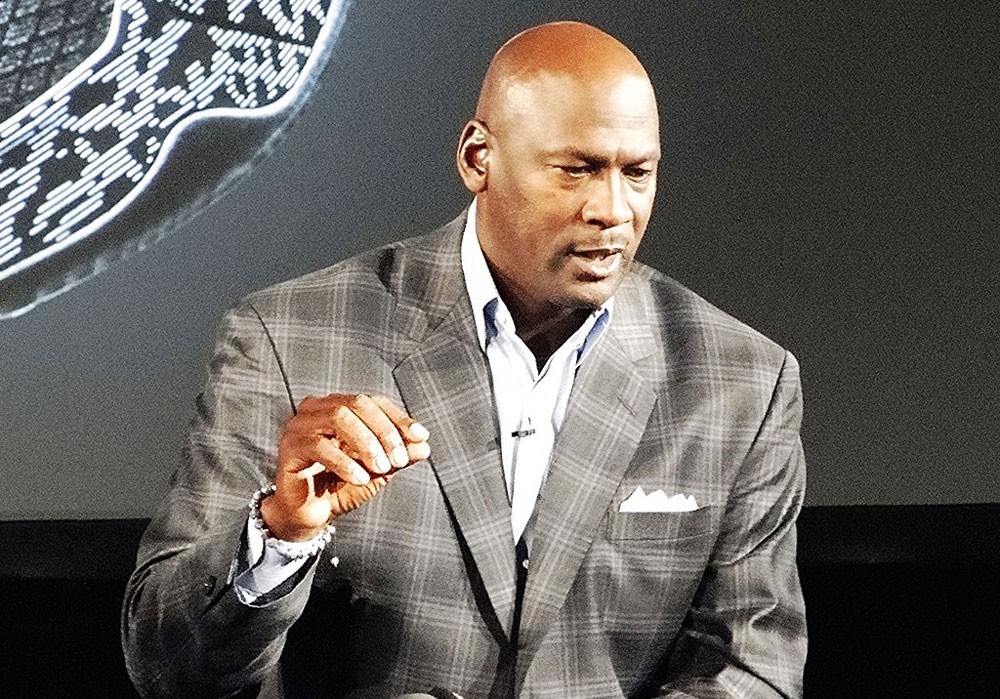
June 6, 2020; Elle
Earlier this month, former NBA star Michael Jordan and his associated Jordan Brand announced a joint donation of $100 million over the next ten years to organizations promoting racial, social justice, and access to education.
While undeniably a significant sum of money, Jordan’s announcement has been far from universally lauded, with many people calling Jordan out on Twitter and elsewhere for his relatively limited history of charitable giving, apolitical past, and lack of activism for racial justice. This moment holds important lessons for celebrities like Jordan who want to make a name for themselves as philanthropists. It also holds lessons for the brands they’re affiliated with and the nonprofits that will ultimately receive their gifts.
Jordan’s manager announced the funding commitment in a tweet on June 5, with a statement that reads, “Black lives matter. This isn’t a controversial statement. Until the ingrained racism that allows our country’s institutions to fail is completely eradicated, we will remain committed to protecting and improving the lives of Black people. Today, we are announcing that Michael Jordan and the Jordan Brand will be donating $100 million over the next 10 years to organizations dedicated to ensuring racial equality, social justice, and greater access to education.”
A spokesperson later clarified that Jordan will give $50 million personally, with the remaining $50 million contributed by the Jordan Brand. The $50 million Jordan will donate personally represents two percent of his $2.1 billion net worth, calling to mind the importance of math (and context) in reporting billionaire philanthropy, as NPQ noted earlier this month.
The funding announcement followed an earlier statement from Jordan on May 31st in response to the killing of George Floyd at the hands of Minneapolis police on May 25th.
“I am deeply saddened, truly pained, and plain angry,” the statement read. “I see and feel everyone’s pain, outrage and frustration. I stand with those who are calling out the ingrained racism and violence toward people of color in our country. We have had enough….Every one of us needs to be part of the solution, and we must work together to ensure justice for all.”
Jordan and the Jordan Brand intend for their $100 million to go toward “ensuring racial equality, social justice, and greater access to education.” However, critics were quick to call out the lack of specificity and raise questions about the intentions of Jordan’s gift. This reaction echoes a growing demand for more transparency in philanthropy and corporate giving.
Sign up for our free newsletters
Subscribe to NPQ's newsletters to have our top stories delivered directly to your inbox.
By signing up, you agree to our privacy policy and terms of use, and to receive messages from NPQ and our partners.
“Our fixation on celebrities, coupled with an absent government, has created a perfect storm for the very American sport of scrutinizing individual behavior. We parse statements for authenticity,” E. Alex Jung wrote recently on Vulture.
Much of the discussion around Jordan and the Brand focused on the past, not the present. Some said it was hard to reconcile Jordan’s current donation with past comments, such as the infamous “Republicans buy sneakers too,” remark he made in response to criticism over his 1990 refusal to endorse Democrat Harvey Gantt, a Black man running for US Senate in Jordan’s home state, against Republican Jesse Helms, a known racist.
This donation is Jordan’s largest disclosed public gift to date by far, but not the first focused on racial justice. In 2016, Jordan gave $5 million to Smithsonian Institute’s National Museum of African American History and Culture, and in 2016, he gave $1 million to the NAACP and $1 million to the International Association of Chiefs of Police’s Institute for Community-Police Relations.
According to Good Magazine, Jordan has not yet decided which organizations will receive his latest and largest donation.
“We haven’t yet figured which vehicles to utilize,” Jordan said. “But it’s first about making an effort. It’s not just [donating] money. It’s the act of calling on all of us to take a look at ourselves. That’s an important start.”
That may be true, but a more specific and transparent funding announcement might have been better received. By failing to clearly outline the values that will guide his fund (“racial equality, social justice, and greater access to education” is not a lot to go on) and/or make some initial donations that might show his values in action, Jordan missed an important opportunity to boost organizations that support the causes he cares about most. His brand also risked appearing to be one of many, from Apple to Facebook, criticized for trying to jump on the “Black Lives Matter bandwagon” with vague statements that do not offer clear details on gift amounts or recipients.
This may seem like strong criticism in response to a $100 million donation, but the larger the gift, the greater the responsibility for transparency becomes.—Alyssa Conrardy












